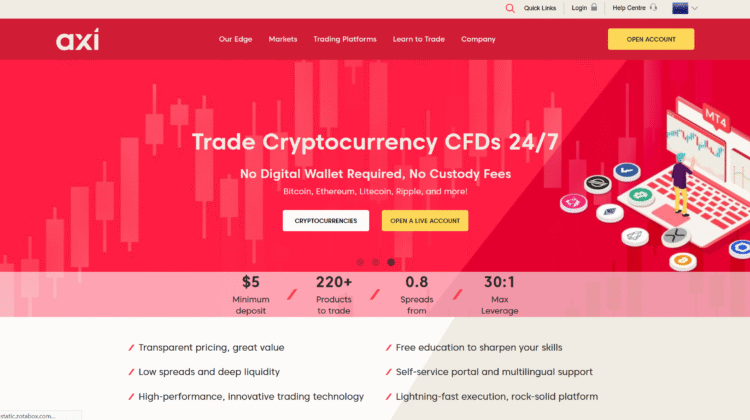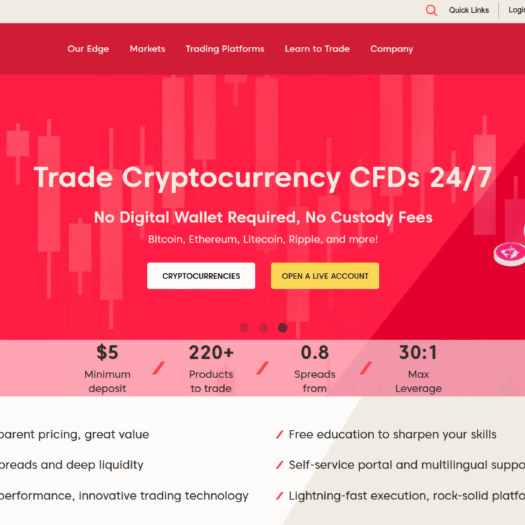
7 Convincing Strengths and Risks of Axi.com That Every Trader Should Know
7 Convincing Strengths and Risks of Axi.com That Every Trader Should Know

Axi.com (often branded simply “Axi”) is a well-known forex and CFD broker that promotes competitive pricing, strong regulation, and good technological tools. On the positive side, many of its offerings are solid and transparent. On the negative side, there are trade-offs and limits that savvy traders must understand before committing funds. Below are seven convincing strengths and risks to weigh when considering AXI
1) Strong regulatory oversight and recognized credibility
Axi is regulated by the UK Financial Conduct Authority (FCA) for its UK entity, which provides high levels of legal protection, oversight, and client-fund safety. It also operates under entities in other jurisdictions with relevant regulation. This regulatory status is a positive that many brokers do not attain. Compared to brokers that are only regulated in offshore locations (for example ones in Seychelles or some Caribbean jurisdictions), Axi’s FCA regulation gives assurance of rules around client money segregation, risk disclosures, complaints handling, and more rigorous enforcement of standards. Reviews on broker comparison sites often highlight Axi’s reputation in Europe and UK as safer than many unregulated alternatives.
2) Transparent pricing, multiple account types, and clear documentation
Axi offers a few different account types including “Standard” type and “Edge” (ECN style) which have different cost and spread structures. It publishes its fees, legal documentation (client agreement, product schedule, execution policy), and terms & conditions in clear sections on its website. It also supports popular platforms such as MetaTrader 4, which is well-known in the trading community. Educational resources like the Axi Academy, free ebooks, glossary tools, and video tutorials are also provided. This transparency is a strength: it lets traders compare costs and conditions and reduces the chances of hidden fees. Broker review forums frequently mention Axi’s clarity around spreads and commissions, in contrast to brokers whose pricing is opaque or surprises appear at withdrawal time.
3) Competitive spreads and good execution, but with conditions
Axi advertises competitive spreads, especially on major currency pairs under standard or Edge accounts. It claims tight spreads starting low in calm market conditions, good execution and technology. However, some conditions apply: spreads may widen significantly during volatile market periods; commissions may apply depending on account type; overnight financing or swap charges will add cost; and available leverage depends on jurisdiction and client classification (retail vs professional). Some users on review sites report that live spreads during news announcements are wider or slippage occurs, which is common but important to anticipate. The result is that for frequent or high-volume traders, Axi can be good value; for casual traders with small account sizes, the cost benefit may be less obvious after all fees are considered.
4) Educational tools and platform quality are good, especially for UK/EU clients
Axi provides strong educational support: Axi Academy, video tutorials, free ebooks, blog content, trading glossaries, and platform-specific guides. Tools like calculators, market news updates, and platform resources help traders learn and plan. The platform infrastructure (especially MetaTrader 4) is solid and familiar; the UK version of the site shows good functionality and client-portal features. For those comparing brokers like IG, Saxo, or Pepperstone, Axi’s educational content ranks well. The positive is that you can get started with less fear of the unknown. The negative is that the depth of educational interaction (webinars, mentorship) may be less intense than brokers specialized in training or community-driven platforms.
5) Limitations in leverage, instruments or regional access
Because Axi is FCA-regulated (among others), its leverage limits for retail clients are constrained under rules such as those from ESMA in Europe. For example, major currency pairs often have maximum leverage around 30:1 for retail clients in many EU/UK regulated entities. That is much less than what certain offshore brokers advertise. Also, not all products are available in all regions; some instruments (like certain commodities or less popular derivatives) may not be offered to clients in specific countries due to regulatory restrictions. Traders used to very high leverage or exotic instruments may find Axi less flexible. Some comparative reviews mention that traders moving from high-leverage brokers find Axi’s limits frustrating initially.
6) Customer feedback is mostly positive, though some critical complaints exist
User reviews (e.g. on Trustpilot and broker comparison forums) often praise Axi for its execution speed, clarity of fees, professionalism, and support. Users appreciate that documentation is available, that the user interface is stable, and that deposits and withdrawals generally work as expected. However, some critical feedback includes complaints about withdrawal delays (especially in non-UK jurisdictions), occasional support responsiveness issues, and difference between promotional claims and real experience during volatile market conditions. Some users say that spreads shown on the website are best-case scenarios and that actual spreads may differ. These discrepancies, while not uncommon among brokers, are significant for risk-conscious traders seeking predictability.
7) Reputation, history, and trust are substantial assets
Axi has been around since about 2007, giving it many years of operation. It has won awards in broker industry reports, maintains partnerships and marketing presence (for example, sponsoring sports or trading communities), and frequently appears in broker rankings. This longevity contributes to trust—not just because of how long it has existed, but because surviving regulatory and market pressures suggests robustness. Compared to newer brokers or those with no track record, Axi’s history is a positive. But reputation is only one component. Even well-established brokers must consistently deliver execution, uphold transparency, and maintain client trust to keep their credibility over time.
Conclusion: Final Verdict on Axi.com
Axi.com strikes a strong balance between regulatory safety, transparent operations, solid platform tools, and competitive conditions. If you are an intermediate or advanced trader, particularly one based in the UK or EU, Axi presents many of the qualities you would ideally want in a broker: regulation from a top-tier authority, published fees and agreements, multiple account types, familiar platforms, and good educational back-up. These strengths place Axi well ahead of many offshore brokers that promise high leverage but absent legal protections, hidden fees, or unclear execution policies.
The regulatory oversight is perhaps the most important advantage. FCA regulation (and equivalent regulation under other entities Axi operates) means you get enforceable rights, clearer obligations for the broker, and better protection of your funds. Client money segregation, transparent legal documentation, risk warnings, and complaint channels are not nice-to-have extras but essential in a serious trading relationship. For many traders, that legal foundation is what separates credible brokers from those you should avoid.
However, the positive attributes do not mean Axi is perfect or the best option for everyone. The constraints around leverage, required documentation, possible account classifications, region-based restrictions, and additional costs beyond basic spread should be understood before you commit. For traders used to very high leverage, exotic instruments, or minimal verification, Axi is more restrictive in comparison. But those restrictions are usually there for protection, and while frustrating, they often reduce risk.
Furthermore, while many users report that execution, support, and service are good, the discrepancy between “advertised” best-case spreads and what you see live (especially during volatile periods or news events) is nontrivial. Traders should measure that difference carefully. Test with small trades, small deposits, and test withdrawals to see how real conditions match promotional claims. The clarity of documentation is helpful there, but the proof is in real use.
In sum, Axi.com is among the more credible, balanced, and safer brokers in the forex/CFD space if you are in a jurisdiction where its regulatory arm applies to you. If trading conditions matter more than extreme leverage or minimal oversight, Axi is likely a good match. If instead you prioritize maximum leverage, minimal documentation, or unrestricted instruments, you may have to accept higher risk and possibly choose brokers with weaker regulation (but those come with trade-offs you should be aware of loudly). Always trade with money you can afford to lose, evaluate all cost components, test the broker’s real service, and keep detailed records. That approach matters more than choosing the “top broker” in advertisements—it’s what preserves capital and sanity.









